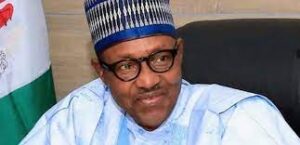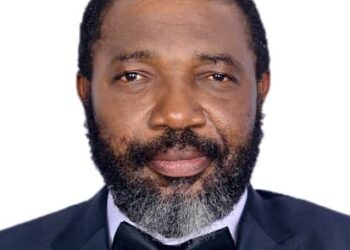Stakeholders have critised the President Muhammadu Buhari-led federal government over the planned increment in the pump price of fuel to about N340 per litre from February next year.

Recall that the Group Managing Director of Nigerian National Petroleum Company Limited, Mele Kyari, recently said the country would be out of the subsidy regime in the first quarter of 2022, adding that subsidy would have been eliminated this year, but for certain factors that prevented it.
But reacting to the move, stakeholders and experts have said the planned increment is unacceptable, as there was no wisdom in deregulating an import based commodity.
Labour leaders and analysts wondered how the government wants to keep regulating the price of what it does not produce, wondering why the government, who hitherto said fuel subsidy was a fraud, was still discussing about subsidy more than six years after taking over.
They maintain that the nation’s four refineries must be made to operate optimally, and local refining capacities must be increased, to avoid crashing the Naira and making it less valuable than a tissue paper.
An expert and university don, Prof Wumi Iledare, said the Federal government has no law backing price control, therefore setting the price of PMS at N340 has no regulatory basis.
Wumi, who is a Professor of Energy Economics, Emerald Energy Institute of the University of Port Harcourt, said “The Petroleum Act has been scrapped with respect to the power of the Minister of Petroleum to set petroleum products prices as per PIA 2021.
“However, NNPC Limited being a monopoly importer of PMS cannot be allowed to dictate the price of PMS at will in the wholesale market. The PIA expects the Authority to create a pricing framework in such circumstances. Unfortunately, the hope of an independent and apolitical downstream regulator envisaged in the PIA 2021, has been compromised.”
On the inflation and economic hardship the hike in fuel pump price will bring on Nigerians, the Professor said deregulation of the petroleum downstream sector was a better approach to minimise the current hardship, as it will reduce the pressure on foreign exchange.
“Regarding economic hardship, the deregulation of the petroleum downstream sector is a better approach to minimise the current hardship in terms of reducing the pressure on forex. Inflation is not demand induced but supply pushed because of the cost of doing business. Of course wages and salary are low but other costs have been pushed up making more money to be chasing a few goods.
A Business and Financial Analyst, Mr Ignatius Chukwu, said the fuel market must be deregulated, and the government must stop fixing fuel prices.
Chukwu maintained that if Nigeria does not kill subsidies, subsidies will kill the country, explaining that whether subsidies are removed or not, inflation will still occur, due to too much borrowing.
“My position is that the fuel market must be deregulated. Government should come out with deciding the price of fuel. I support that market forces should decide the price per day. Doing deregulation and still fixing prices is wrong.
“Pumping money to subsidize and borrowing to back it drives inflation too. It also supports corruption. FG can maintain the subsidy till Dangote refinery starts work. Then you have government fuel and Dangote fuel. The buyers will choose.
“Then, the government can announce full deregulation. What you gain in subsidy, you lose in many other ways. If Nigeria does not kill subsidy, subsidy will kill Nigeria.”
The Trade Union Congress in Rivers State said the government must commercialize the nation’s four refineries to operate optimally using the Nigeria LNG model.
Secretary of TUC in Rivers State, Engr Fortune Obi, maintained that fixing the price of imported commodity was not a welcome development.
It is not a welcome development. There is nothing good about deregulating an import based commodity. The way forward is for the government to rehabilitate the refineries and fully commercialise it using the NLNG model.”
Read Also: Shell Advocates Optimisation Of Nigeria’s Energy Resources To Transition To Renewables
Meanwhile, the Youths and Environmental Advocacy Centre, has advocated for development of local refining capacities, including issuance of licenses for the establishment of modular refineries especially for artisanal crude oil refiners, maintaining that increased local refining will crash fuel prices.
Executive Director of YEAC, Fyneface Dumnamene Fyneface, expressed shock that the government was still paying subsidy on fuel, after Presidential Spokesman, Garba Shehu, announced in July 2020 that there was no more subsidy on PMS that is why fuel was costing N162 per litre.
Thus, government should stop their plans and focus on developing local refining capacities including issuance of licenses for the establishment of modular refineries especially for artisanal crude oil refiners and creation of the Presidential Artisanal Crude Oil Refining Development Initiative (PACORDI) in the Niger Delta to boost capacity of the country and gradually crash prices of petroleum products.
“The planned increasement is unacceptable as it would expose Nigerians to more hardship. Nigerians are currently suffering following the country’s harsh economy coupled with inflationary trends and the citizens can’t afford to pay extra for PMS.”
Kindly like us on Facebook
















Discussion about this post